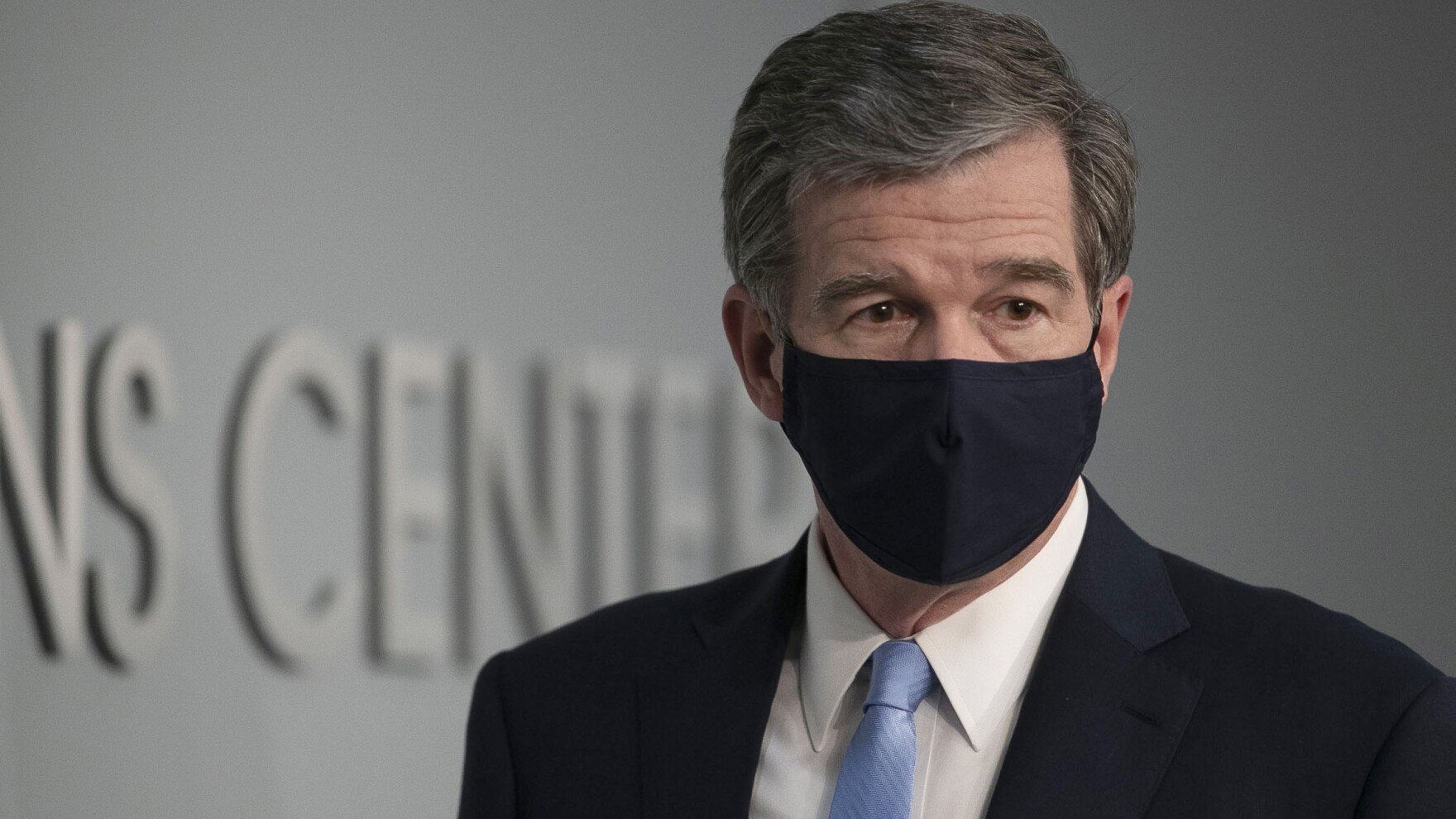Governor Cooper Recommends Schools End Mask Mandates
On Feb. 17th, NC Governor Roy Cooper encourages schools and local governments to end their mask mandates. Source: WUNC
North Carolina, like the rest of the country, has witnessed a decrease in coronavirus cases since January, when the Omicron variant ran rampant. As a result, the state has been reevaluating its mask policies over the last month — including to handle mask protocols in schools.
As of now, there have been 9,941 confirmed cases in K-12 schools in North Carolina, with one reported death. These numbers are promising and provide officials with enough assurance to begin dropping some of the protocols. Last year, Governor Roy Cooper signed a bill that allowed school districts to individually determine how each wanted to pursue mask requirements in schools. The General Assembly passed the bill with bipartisan support, requiring each school board to hold at least one vote per month regarding mask mandates, making sure requirements stay up to date with current virus trends.
Many states with Republican governors have already ended mask mandates, and now some states with Democratic governors are following suit. There is evidence supporting claims that masks are not as effective for young children and therefore there is less need for them. Additionally, there is evidence that shows that masks have harmed both children’s educational and social development. Furthermore, while the presence of the virus decreases as vaccination rates rise, precautionary measures like mask-wearing become less necessary. Due to considerations like these, states are reevaluating whether the benefits of masks outweigh potential costs.
On February 17, Gov. Cooper held a press briefing where he encouraged schools to begin lessening mask restrictions. He cited the decrease in coronavirus cases in the state and the increasing vaccination rate as reasons to cut back on restrictions. Before Gov. Cooper’s briefing, some school districts had already lifted the mask mandates; however, following the briefing, more schools have lifted the mandates or made masks optional.
The bill signed by Gov. Cooper last year still remains in effect; however, Republican lawmakers have put forward new legislation that would end the monthly meetings of school boards and make masks optional for all students in North Carolina. The governor vetoed this bill, even after encouraging schools to end mandated masking. Republicans plan on overriding the veto so that they can “return this decision to parents, where it belongs.”
Schools will likely begin lifting the mask mandates, if they have not already, with most having been lifted by the end of March. It does not appear there has been much pushback from lifting the mask mandates and support been bipartisan in the General Assembly. This will likely continue as the pandemic continues to ebb and cases decrease.
It is also likely many of the restrictions still in place throughout the state will begin to be lifted as a result of Gov. Cooper’s optimism on the state’s progress regarding viral spread. This is also to become more likely as more people grow tired of the mandates. Last week, anti-mask and anti-vaccine protestors organized a protest in Raleigh in order to voice their dissatisfaction with the handling of the pandemic. Although protesting is a more extreme reaction, the anti-mask sentiment appears to be growing across North Carolina, with a recent online poll conducted by the Charlotte Observer showing that 41% of respondents indicated they would not wear masks once the Mecklenburg mandate was lifted. This was a very informal poll; however, it provides insight into public sentiments regarding the mandates after nearly two years of the pandemic.
Over the next few months, many states will likely lift their mask mandates and COVID protocols if they have not already. With the high level of vaccinations and the low case count, in conjunction with COVID fatigue, states are looking to move towards normal operating procedures.

